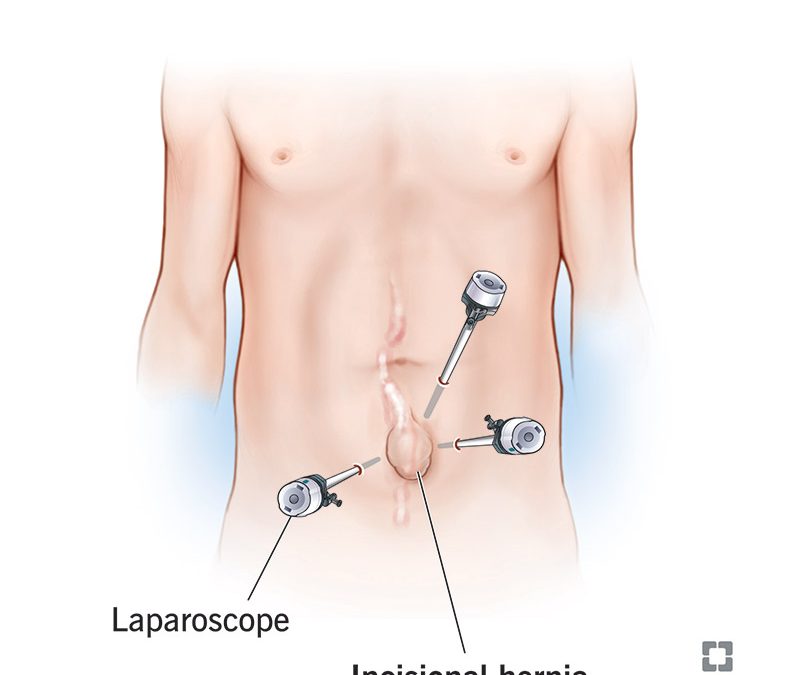Human organs hold surrounding muscles in place. During some episodes, these muscles may break down, causing one of the organs to protrude through muscle walls. This condition is termed as a hernia. A hernia can appear anywhere in the body; the most common areas include the abdomen, chest, and hips.
Hernias may occur in both genders; however, they are more common in men than women. Pregnant women are usually at a higher risk of developing hernia in females. There can be many causes of this condition. Certain activities, such as coughing hard, smoking, performing strenuous exercise, straining to make bowel movements, or lifting heavy objects, may increase your chances of developing a hernia.
If you suspect any organ protruding out of your muscles, your first plan of action should be to schedule an appointment with the doctor. Hernias don’t always require a surgical approach. In many cases, they go on their own. But in severe instances, surgical intervention becomes important.
Do I Always Need Hernia Surgery?
The doctor will examine you using physical examination or other methods. They may suggest a wait-and-see approach to the condition in the following cases:
- If the size of the hernia is small and does not cause any pain or discomfort.
- If you can easily push back the hernia protruding from the muscle wall.
- If the hernia disappears when you lie flat on your back.
In cases when more tissues start poking through the muscle walls over time, the condition gets complicated. With each day, you should meticulously monitor the situation and reach out to the doctor upon changing symptoms.
When Does Hernia Surgery Become Necessary?
As you already know, not all hernias require surgery. If the condition doesn’t affect your quality of life, the doctor will not advise surgery and give medication and other instructions to manage the condition. But if a hernia starts affecting your quality of life, you may want to take another approach.
The doctor may recommend hernia surgery in the following cases:
- If you experience severe pain and discomfort in general and even while making movements.
- If you are unable to push the hernia back into the abdomen or muscle wall.
- If the skin of your hernia has become discolored or darkened.
- If you experience fever or nausea along with increasing size of hernia.
- If you experience excessive pain across the hernia site.
Depending upon the size of your hernia, its location, and severity, the will perform traditional hernia repair or laparoscopic hernia repair surgery. Nowadays, robotic hernia repair surgery is also used to treat this condition and enable faster recovery. Dr Sagggu is the best hernia surgeon in delhi and NCR with decades of experience and thousand of successful procedures.
Can Hernias Be Prevented?
In general, hernias cannot be prevented. That said, there are some lifestyle changes that you can adopt to ensure the occurrence of this condition is rare.
- Watch your eating habits. Hernia is more common in obese people.
- Keep yourself hydrated and eat a fiber-rich diet.
- Quit smoking and avoid strenuous workouts.·
Making little changes in your daily routine may go a long way in reducing the risk of hernia and improving your quality of life.
What are the Benefits of Hernia Surgery?
- Hernia surgery minimizes the recurrence of hernia in most cases.
- You do not undergo excessive pain or discomfort, thanks to the advanced surgical approaches, such as laparoscopic surgery and robotic surgery.
- The above-listed procedures for hernia repair allow faster recovery.
- Your condition is treated, which improves your quality of life.
Are There Any Risks Associated with Hernia Surgery?
While the success rate of hernia repair surgery is high, some people may fall prey to the following risks.
- Bruising or infection
- Bleeding at the incision site in case of traditional hernia repair surgery
- Problems with urinating if the hernia is located in the groin area
- Accumulation of fluid known as seroma at the prior site of the hernia
- Long-term side effects, such as chronic groin pain, mesh moving or breaking down, or recurrence of hernia in the worst-case scenario
To recover completely from hernia repair surgery, take all the instructions of the doctor seriously, especially when it comes to diet and lifestyle changes.
What Complications Can Untreated Hernia Cause?
If you see the symptoms worsening, it is integral to undergo hernia repair surgery. If you don’t opt for hernia repair surgery, it may result in unwanted complications. One of the most common complications of untreated hernia is strangulated. It occurs when the bulging tissue is squeezed by the walls of muscles. This results in decreased blood supply, after which the tissues die.
Do not leave your hernia untreated, especially if the doctor has recommended surgery as its treatment. In the best practice, you must be watchful of all the symptoms of this condition and reach out to the doctor. They will prepare you for surgery and ensure that your condition is treated.

